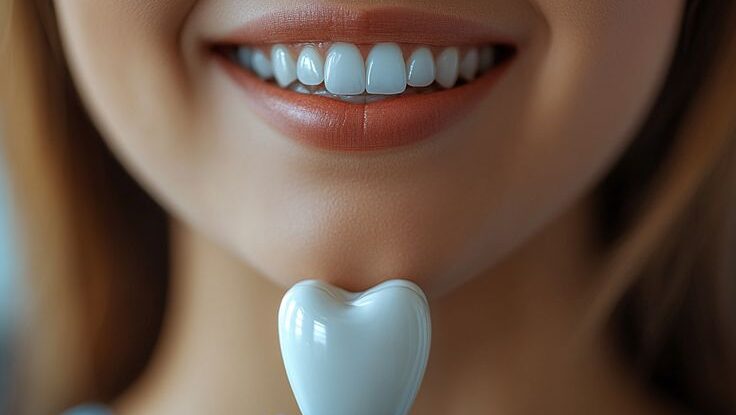In the realm of modern dentistry, technological advancements continue to redefine what is possible, enhancing both patient outcomes and the overall dental experience. Among the most groundbreaking innovations is the advent of smart implants—devices that combine traditional implantology with cutting-edge digital technology to revolutionize long-term oral health. This article explores the role of smart implants, including zygomatic implants, and their impact on maintaining good dental health.
The Evolution of Dental Implants
Dental implants have been a cornerstone of restorative dentistry for decades. Traditional implants, typically made from biocompatible materials such as titanium, serve as artificial roots to replace missing teeth. These implants fuse with the jawbone, providing a stable foundation for crowns, bridges, or dentures. However, as technology advances, so too does the functionality of these devices.
Enter smart implants. Unlike their traditional counterparts, smart implants are embedded with sensors, chips, or wireless communication capabilities. These enhancements enable real-time monitoring of various parameters, such as bone health, implant stability, and even oral hygiene practices. Such innovations represent a shift from passive restoration to active participation in maintaining good dental health.
The Role of Zygomatic Implants in Complex Cases
Zygomatic implants are a specialized type of dental implant designed for patients with severe bone loss in the upper jaw. Unlike traditional implants, which are anchored in the jawbone, zygomatic implants are longer and are anchored in the zygomatic bone—the cheekbone. This makes them a viable solution for individuals who may not be candidates for standard implants due to insufficient bone density.
When integrated with smart technologies, zygomatic implants can offer even greater benefits. Sensors within these implants can monitor bone integration, detect early signs of complications such as infection, and provide feedback on the overall health of the surrounding tissue. Such features not only improve the success rate of complex cases but also empower patients and clinicians with actionable data to ensure long-term oral health.
How Smart Implants Support Long-Term Oral Health
Smart implants are designed to address some of the most pressing challenges in oral healthcare. Here’s how they contribute to maintaining good dental health:
1. Real-Time Monitoring: Smart implants can continuously monitor the implant’s stability and the health of the surrounding bone. This information is invaluable for early detection of issues such as bone loss, which can compromise the implant’s longevity.
2. Enhanced Diagnostics: By collecting data on temperature, pressure, and pH levels in the oral cavity, smart implants can alert both patients and dentists to conditions that may require intervention. For example, an increase in local temperature could indicate the onset of inflammation or infection.
3. Improved Oral Hygiene: Some smart implants come equipped with sensors that track oral hygiene practices. These devices can provide feedback on brushing techniques or frequency, helping patients adopt better habits for maintaining good dental health.
4. Customized Care Plans: The data collected by smart implants can be integrated into personalized treatment plans. Dentists can use this information to tailor their approach, ensuring that each patient receives care optimized for their unique needs.
5. Remote Monitoring: In the era of telehealth, smart implants enable remote monitoring, allowing dentists to keep track of their patients’ oral health without frequent in-office visits. This is particularly beneficial for individuals with mobility issues or those living in remote areas.
Benefits Beyond Oral Health
The advantages of smart implants extend beyond the immediate scope of dental health. By improving oral health outcomes, these devices can also have a positive impact on overall well-being. Studies have shown that poor oral health is linked to systemic conditions such as cardiovascular disease, diabetes, and respiratory infections. By enabling better management of oral health, smart implants may contribute to a reduced risk of these associated health issues.
Additionally, smart implants offer psychological benefits. For many patients, the ability to monitor their own oral health fosters a sense of control and confidence. This is particularly important for individuals who have previously experienced dental complications or failures.
Challenges and Future Directions
Despite their promising potential, smart implants are not without challenges. High costs, concerns about data privacy, and the need for further clinical validation are among the primary hurdles. Additionally, integrating these advanced devices into existing dental workflows requires training and adaptation for both clinicians and patients.
Looking ahead, the future of smart implants appears bright. As technology continues to evolve, we can expect even more sophisticated features, such as advanced AI algorithms for predictive analytics and regenerative capabilities to promote tissue growth. These advancements will further cement the role of smart implants in maintaining good dental health.
Smart implants represent a significant leap forward in dental technology, offering innovative solutions to enhance long-term oral health. By combining the benefits of traditional implants with the capabilities of modern technology, these devices empower patients and clinicians alike. Whether addressing complex cases with zygomatic implants or promoting better oral hygiene practices, smart implants are poised to redefine the future of dentistry.
As we continue to embrace these advancements, maintaining good dental health becomes not just a possibility but a promise. With smart implants leading the charge, the future of oral healthcare looks more connected, informed, and effective than ever before.
Smart Implants: The Intersection of Technology and Long-Term Oral Health

